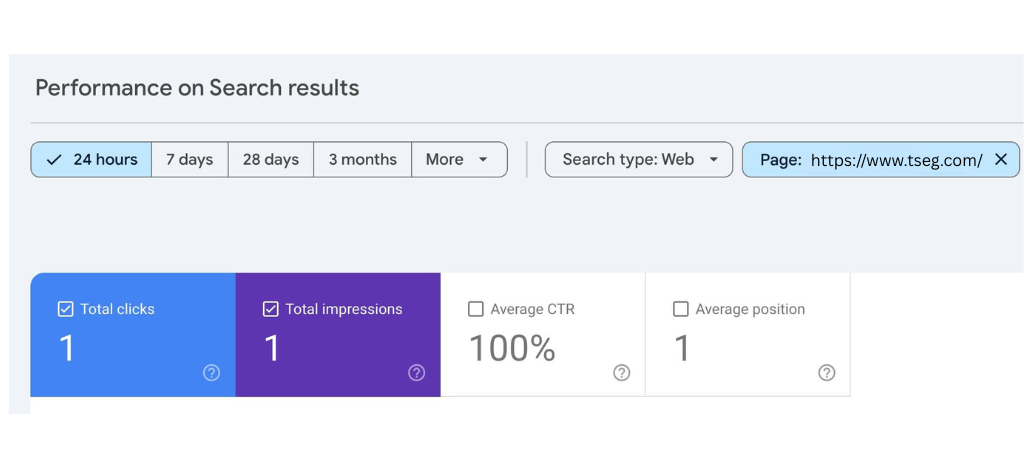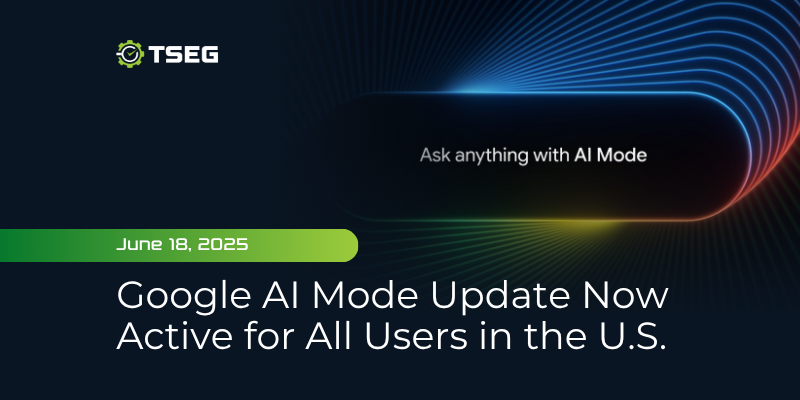Google AI Mode Update Now Active for All Users in the U.S.
Posted on Wednesday, June 18th, 2025 at 1:17 pm
AI Mode Rolls Out to All U.S. Users
Google has begun activating its new AI Mode across search results for all users in the United States. First announced at Google I/O just three weeks ago, the feature is now appearing in both signed-out and incognito sessions.
AI Mode introduces a new tab within the Google Search interface that triggers when users enter more complex or open-ended queries. Instead of a traditional list of links, searchers may now see a fuller, AI-powered response that pulls together comparisons, reasoning, and summaries. While it’s not visible on every query, early indicators suggest it’s becoming increasingly common for searches involving legal issues, medical information, or financial advice.
There’s no opt-in or setup needed. If you’re in the U.S. and you’ve searched Google recently using a longer or more nuanced question, you’ve likely already seen it in action.
Bonus: See How Law Firms Appear in Google AI Mode
How AI Mode Changes Google Search
AI Mode changes how Google handles search queries at the core.
When someone enters a longer question, Google now runs several related searches at once using a method called “query fan-out.” Instead of delivering one set of results, the system pulls in data from multiple sources and subtopics, then builds a response that presents it all together. This helps users get a more complete answer without needing to dig through multiple pages on their own.
Google has said this format works well for questions that involve comparisons, context, or multiple angles. That description matches many legal searches, especially in areas like personal injury, criminal defense, mass torts, and family law. Questions such as “What are my rights after a car accident in Texas?” or “Can I sue for emotional distress?” are exactly the type of queries AI Mode is designed to handle.
It also works across text, voice, and image searches, and introduces conversational prompts that guide users to ask follow-up questions. This builds on what Google has already started with AI Overviews and Gemini integration earlier this year.
Law firms need to consider how this changes content visibility. Traditional blue links are still present, but now they may sit below an AI-generated answer that pulls in data from across the web. If your site isn’t written in a way that helps Google identify it as a strong source for structured, well-written information, you risk being left out of those answers entirely.
How AI Mode Data Is Reflected in Search Console
Search Console now includes AI Mode impressions and clicks in your standard web search data. That means there’s no separate view to isolate performance tied to this new feature. If you start noticing changes in impressions or click-through rates, some of it could be tied to how your pages are being shown in AI-generated responses rather than in the classic list of search results.

The SEO Work That Matters Most Right Now
With AI Mode taking a more active role in shaping search results, content that ranks well is no longer just about keywords and backlinks. Google’s AI is favoring sources that offer context, structure, and clarity. That puts pressure on law firms to build pages that simultaneously answer questions and help Google understand how those answers fit into broader legal topics.
Well-organized headers, clean formatting, and topic depth all factor into whether your site is selected as a source in AI-generated responses. Google’s system is scanning content in real time, pulling in snippets from across different pages, and stitching them together to form its answer. Firms that create pages focused on one clear user intent, like how to calculate damages in a personal injury claim or what to expect at an arraignment, will see more traction.
Local cues still matter. Location-specific authority helps Google’s models deliver answers with regional context. This continues to give an advantage to firms that have invested in strong local optimization tied to their practice areas.
If your SEO strategy hasn’t already adapted to the way Google’s AI handles legal information, now is the time to revisit it.
Our team is already producing content designed to surface in AI Mode. We structure legal pages to meet the exact formatting, depth, and clarity that Google’s systems prioritize when building its AI responses. We track how AI-generated answers pull data from firm websites and monitor which topics are triggering AI Mode appearances across practice areas.
This is the kind of detail work that gives law firms a real advantage. As AI becomes a more prominent layer of search, the firms who adapt early will benefit.
If your firm is ready to compete in this new version of search, we’re ready to help you do it.
